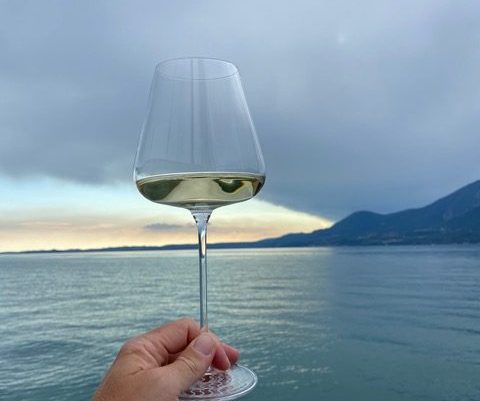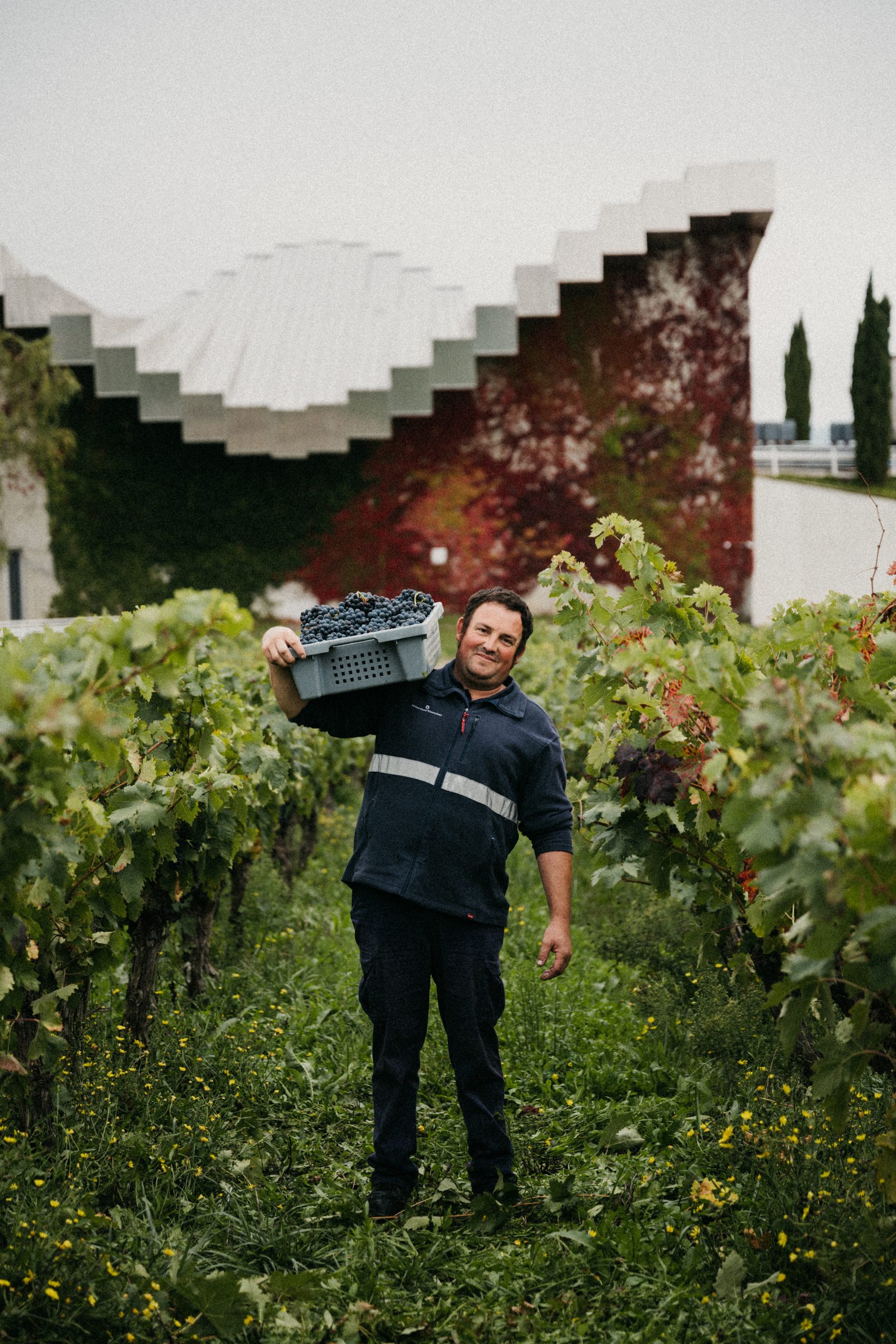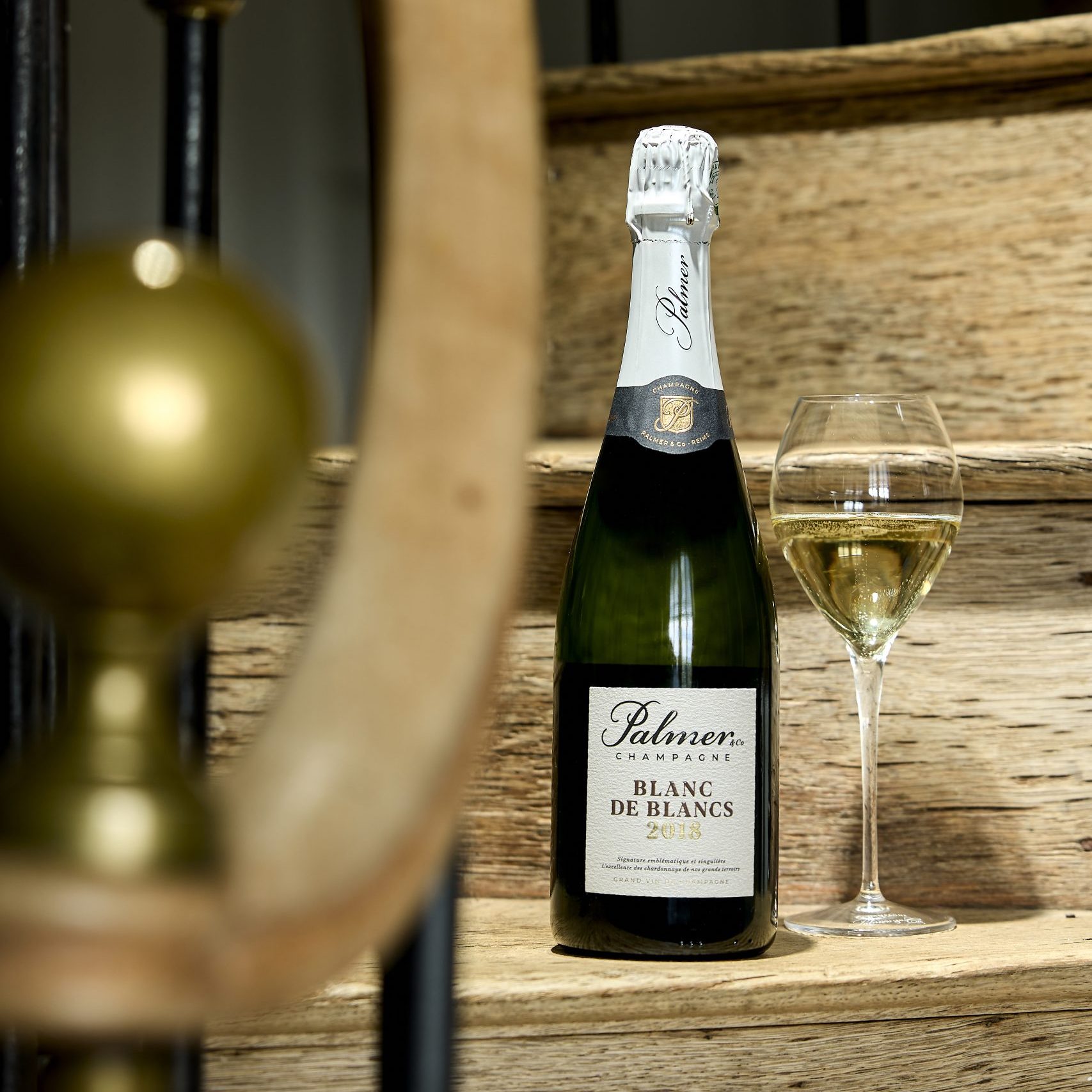Twelve Italian wines for Christmas…
Filippo Bartolotta runs through his top twelve Italian wines for Christmas, which includes three Italian sparklers, a trio of harmonious whites, one rosé and host of heavenly reds.
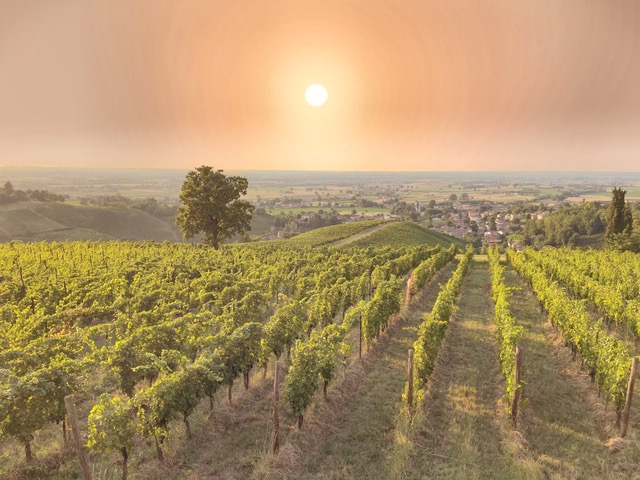
On the first day of Christmas my Italian love sent to me…
A Prosecco Valdobbiadene Superiore DOCG.
Out of over 750 million bottles of Prosecco each year a little over 100 of them is actually Prosecco Superiore Valdobbiadene DOCG. So what is the main difference? It is still produced with the Glera variety, the majority of it is a tank method sparkling usually brut -or the slightly sweeter version extra-dry- just like Prosecco DOC, but it must be produced with lower yields per hectare and it must come only from the specific area of Valdobbiadene.
Geometrically design vineyards rolling on smooth but very steep hills 50 km aways form Venice and 100 km from Cortina in the Dolomites.
The soils of Conegliano Valdobbiadene are either former the raising of sea or lake beds marls and sandstone or the deeper clay based soils created by the glaciers of the Dolomites. Within the Prosecco Superiore Docg you could also stumble across the smaller unique micro-zones of Rive and Cartizze with even lower yields and reacher tasting profile.
What to go with? This wine is the king of Italian Antipasti so enjoyed with most starters, preferably fish or veggie based. The sweeter Extra-dry version is perfect with fresh cheese, poultry and of course with some nice Christmas dessert.
On the second day of Christmas my Italian love sent to me…
Two Lambrusco DOC and A Prosecco Valdobbiadene Superiore in a pear tree.
Lambrusco DOC is a galaxy with so many wines starting from the driest and lightest to the sweetest and most extractive. So how to choose? If you are going to have some oysters or a great “frittura” (fried fish) go for a Japanese katana cleansing Lambrusco di Sorbara DOC “ancestral method” style, which is a pet nat with no residual sugar at all. If you are in the mood for a great Christmas Sunday roast then you better off with a Lambrusco Reggiano DOC with it’s lovely tannic structure and wonderful black cherries and violets. If you are having a cherry or strawberry pie craving then, give an “amabile” -off dry- version of Grasparossa di Castelvetro DOC a go and you’ll remember me forever!
On the third day of Christmas my Italian love sent to me…
Three Oltrepò Pavese DOCG, Two Lambrusco DOC and A Prosecco Valdobbiadene Superiore DOCG in a pear tree.
Italy’s most important Pinot Noir district with its 3000 hectares. Oltrepò Pavese is a poetic land on the Western most edge of the Appenini Mountain range where the maritime Alps bend in! Three days walking on the ancient salt road and one is in Portofino from which the wine region gets its mild winds; the most enchanted and steep hills of vineyards and the proximity to Emilia Romagna and Piemonte make this land one of the most undiscovered wine region of Italy. Here is where the first ever “traditional method” Pinot Noir was invented in 1875 and today Oltrepò Pavese is finding its way back as one of the capitals for great sparkling wines of structure, character and aging potential. Great wines to go with the whole meal or to match not just the classic appetizers or fish dishes but also more structured poultry dishes like a festive stuffed chicken or a twice cooked pork belly!
On the fourth day of Christmas my Italian love sent to me…
Four Grillo Sicilia DOC, Three Oltrepò Pavese DOCG, Two Lambrusco DOC and A Prosecco Valdobbiadene Superiore DOCG in a pear tree.
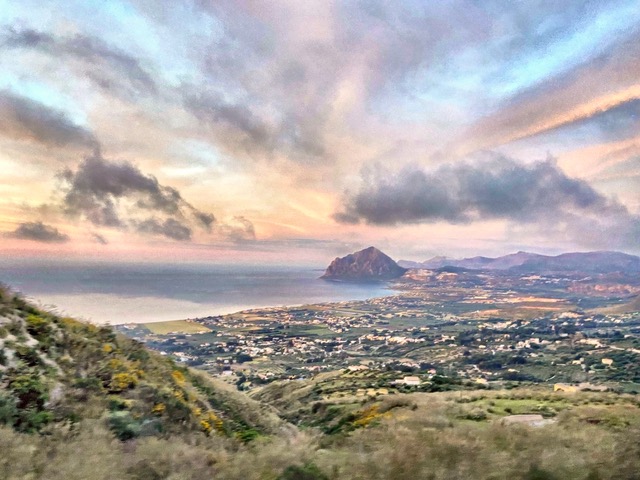
Sicily is the largest and most Southern Island in the Med. It is also Italy’s largest vineyard and the most diverse. The harvest last for over 100 days and yet most people think of Sicily as the source of fat and overripe whites or jammy and extractive reds. Well gotta change your mindset as Sicily has been producing some of the most excitingly fresh and crunchy Italian whites…also with an unbelievable value for money. Grillo is a cross between Cataratto and Zibibbo created in the late 19th century to add up zest and aromas to Marsala. Nobody really focused on the variety to produce high quality whites till the arrival of Sicilia Doc in 2011. Today most Grillo come in the market without -or very little oak presence- to showcase some extremely refreshing and reactive whites packed with citrus fruit, some refreshing green notes and a wonderful salinity. Perfect wines to match sashimi, lobster salad or a creamy langoustine pasta!
On the fifth day of Christmas my Italian love sent to me…
Five Alto Adige Pinot Bianco DOC, Four Grillo Sicilia DOC, Three Oltrepò Pavese DOCG, Two Lambrusco DOC and A Prosecco Valdobbiadene Superiore DOCG in a pear tree.

If there’s one Italian region famous for its vertical, age worthy and elegant whites that would be Alto Adige. Less then 1% of all Italian production but over 98% of the Alto Adige wines are DOC! That is a sign of uncompromising quality. From the Southern exposed terraces of the Dolomites across the Adige and Isarco River, enjoying the warm Ora wind from Lake Garda and the refreshing Alpine breezes this land seems godsend garden for perfect white wines. Forty years ago it was mainly about the reds, today 64% of the regional production is white wines. Basaltic rocks, quartz or sedimentary sandstones generate mineral Rieslings, fruit driven Sauvignon Blanc, Kerner and Chardonnay or enticing Gewurztraminer, but one of the most intriguing variety is Pinot Bianco. Here Pinot Blanc offers a mineral and spice character with a very elegant palate. Perfect with grilled sea bass or a slow roast chicken or even some Egg Benedict.
On the sixth day of Christmas my Italian love sent to me…
Six Lugana DOC, Five Alto Adige Pinot Bianco DOC, Four Grillo Sicilia DOC, Three Oltrepò Pavese DOCG, Two Lambrusco DOC and A Prosecco Valdobbiadene Superiore DOCG in a pear tree.
Lugana is a white wine produced at the bottom end of Lake Garda, the largest lake in Italy. It is produced with the Trebbiano di Lugana variety which for many years it was confused with a regular Trebbiano but recently DNA tests discovered the unique profile of this mineral rich white releasing wonderful hazelnut, herbal and spicy notes together with tangerine and peach fruit. Great with crab cakes, smokey trout fish spread or a light gorgonzola (blue cheese).
Lugana is grabbing its deserved reputation as one of Italy’s greatest whites to be enjoyed young with the “Annata” version. The inner structure of Trebbiano di Lugana though allows this wine for some delicious and unexpected aged samples which can easily go for a good couple of decades!
Partner Content
On the seventh day of Christmas my Italian love sent to me…

Seven Cirò Rosé DOC, Six Lugana DOC, Five Alto Adige Pinot Bianco DOC, Four Grillo Sicilia DOC, Three Oltrepò Pavese DOCG, Two Lambrusco DOC and A Prosecco Valdobbiadene Superiore DOCG in a pear tree.
Cirò is one of the most ancient wines ever produced in Italy and yet an relatively undiscovered one. The main grape variety Gaglioppo (min.80%) is a heat resistant variety. It thrives in dry and hot areas like the marl and clay schists between the Sila Mountains and the Ionic Coast of Calabria.
Gaglioppo is traditionally cultivated with the “alberello” training system to protect the berries from the direct exposure to the powerful Calabrian sunlights. Cirò Rosso is a powerful red with an important structure and length. When vinified rosè it delivers wonderful perfumes of redcurrants, violets, licorice and dry herbs and a gobsmacking citrus juiciness combined with a highly gastronomic salinity, depth and character.
Step out your comfort zone this year and give a high-quality Calabrian rosè a go. Great with a local dish of spaghetti with anchovies & breadcrumbs and of course some red hot chilli pepper or a comforting fish&chips dish.
On the eighth day of Christmas my Italian love sent to me…
Eight Chianti Classico, Seven Cirò Rosè DOC, Six Lugana DOC, Five Alto Adige Pinot Bianco DOC, Four Grillo Sicilia DOC, Three Oltrepò Pavese DOCG, Two Lambrusco DOC and A Prosecco Valdobbiadene Superiore DOCG in a pear tree.
Chianti Classico (the one with the black rooster) is a must for Christmas: its earthy and fruity, it’s light and with a strong character, it’s elegant and yet generous. Perfect for a pasta with ragù, a classic of classics with Fiorentina T-bone steak but also brilliant with whole roasted cabbage or cauliflower with a aged parmesan cheese on top.
Chianti Classico is made with 80% minimum up to 100% Sangiovese grape variety. It comes in the Annata version which is readier to drink and lighter; the Riserva and the Gran Selezione are conceived to be more structured and extractive wines with a hugely underestimated aging potential. During a tasting I had the chance to host not too long ago for some of the most important international wine journalists and experts we started the tasting with a polished 1949, an earthy 1958, a juicy 1969 and all the way to 2019 Chianti Classico has proven to be a wine of terroir and charm.
On the ninth day of Christmas my Italian love sent to me…
Nine Barolo, Eight Chianti Classico, Seven Cirò Rosè DOC, Six Lugana DOC, Five Alto Adige Pinot Bianco DOC, Four Grillo Sicilia DOC, Three Oltrepò Pavese DOCG, Two Lambrusco DOC and A Prosecco Valdobbiadene Superiore DOCG in a pear tree.
Barolo 2018 has created a lot of controversial and polarizing comments. For the most part we hear that it has been a weak or a light vintage but I am not convinced about that. 2018 hasn’t been an easy one because of the rains and hail storms and that is a fact. But the great wine makers of such a high-prized region like Barolo do not bottle a compromising wine. On the contrary Barolo ’18 are jumping put the glass right now, showing delicious red fruit, balsamic notes and a vibrant palate ready to go with a sumptuous truffle risotto or tagliatelle with mushrooms for its earthiness or try it with lamb chops, or Christmas venison and you won’t regret it!
On the tenth day of Christmas my Italian love sent to me…
Ten Moscato d’Asti, Nine Barolo, Eight Chianti Classico, Seven Cirò Rosè DOC, Six Lugana DOC, Five Alto Adige Pinot Bianco DOC, Four Grillo Sicilia DOC, Three Oltrepò Pavese DOCG, Two Lambrusco DOC and A Prosecco Valdobbiadene Superiore DOCG in a pear tree.
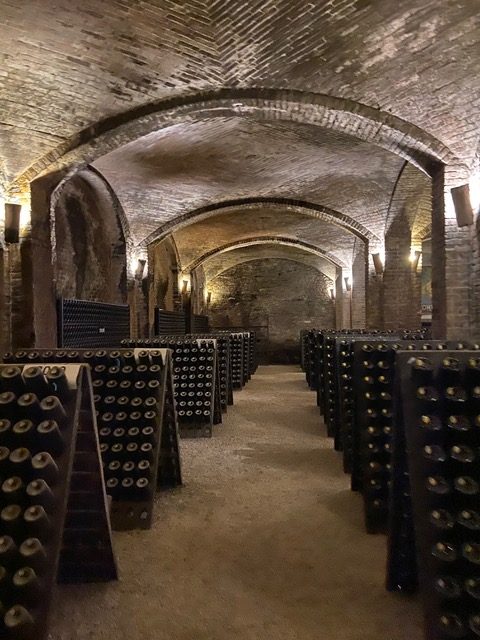
Our 10th wine for the holidays this year would be the mighty underdog of the Italian sparklers: the great Moscato d’Asti. This is an ancient wine with only 5% in alcohol, a lot of natural residual sugar and a fantastic acidity. It is traditionally the farmer’s drink for the midday snack in Piemonte. Light, refreshing with a never ending floral and wonderful white fruit explosion. Way more versatile then expected. this is a perfect dessert wine to match the rich and fluffy dome-shaped Panettone sweet bread or see what happens with a classic Panino with salami and cheese.
On the eleventh day of Christmas my Italian love sent to me…
Eleven Recioto della Valpolicella, Ten Moscato d’Asti, Nine Barolo, Eight Chianti Classico, Seven Cirò Rosè DOC, Six Lugana DOC, Five Alto Adige Pinot Bianco DOC, Four Grillo Sicilia DOC, Three Oltrepò Pavese DOCG, Two Lambrusco DOC and A Prosecco Valdobbiadene Superiore DOCG in a pear tree.
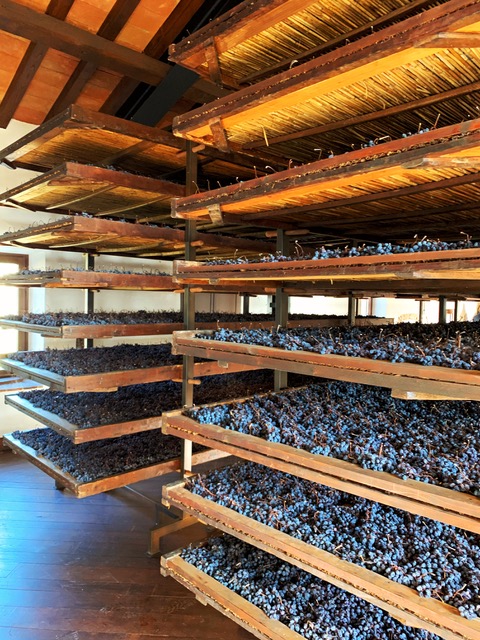
Recioto della Valpolicella is one of the most ancient wines in Europe. A red dessert wine made on the Northern slops of Verona -the city of Reome&Juliet- right under the pre-Alps. Corvina and Corvinone constitute the backbone of this wine, while Rondinella and Molinara add up some color and acidity. The grapes are harvested in September and then go over a second maturation on bamboo mats for three months! The fermentation will start in December but the natural sugar concentration is so high, the yeasts have to give up their job leaving the wine sweet -PS: when they manage to finish the sugar the result will be one of the kings of Italian wines: Amarone della Valpolicella-. Recioto is a great companion of any chocolate dessert but also intriguing its matching with aged Prosciutto and blue cheese.
Prunes, dry figs, tea-tree-oil, Fernet and chocolate!
On the twelfth day of Christmas my Italian love sent to me
Twelve Vermuth Torino, Eleven Recioto della Valpolicella, Ten Moscato d’Asti, Nine Barolo, Eight Chianti Classico, Seven Cirò Rosè DOC, Six Lugana DOC, Five Alto Adige Pinot Bianco DOC, Four Grillo Sicilia DOC, Three Oltrepò Pavese DOCG, Two Lambrusco DOC and A Prosecco Valdobbiadene Superiore DOCG in a pear tree.
Vermouth di Torino is a fortified wine made with an alcohol infusion of herbs and spices. It was born in the 18th Century in the city of Torino in Piedmont and it soon becomes an international success exported by the piemontesi emigrants all over the world. Vermouth was born as a medicinal drink to become one of the main cocktail ingredients. Today Vermouth Torino is enjoying a second life thanks to the current low alcohol cocktails trend but also because the quality is getting higher and higher.
As a result many love it just “liscio” or on the rocks. Big brands as well as artisanal Vermuth (some created also by cult Barolo producers) are a treat from the Aperitivo to dessert but it would also be great for a laid-back Christmas Pizza or Boxing day burger with pickles and everything!
What else can you ask for your Italian Christmas this year?
Related news
Castel Group leadership coup escalates
For the twelfth day of Christmas...
Zuccardi Valle de Uco: textured, unique and revolutionary wines

